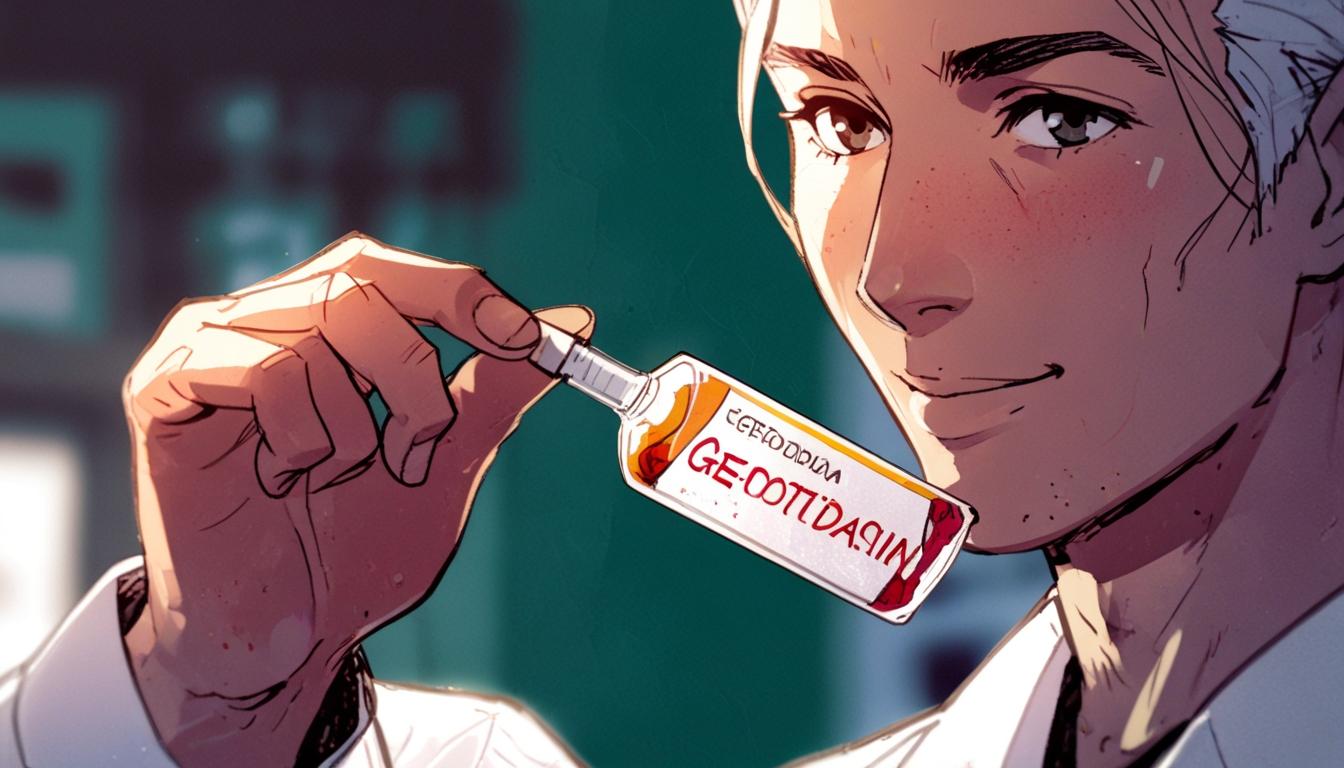The UK Health Security Agency announces a new antibiotic treatment for gonorrhoea, highlighting the urgency of addressing rising cases and antibiotic resistance.
A significant breakthrough in the fight against antibiotic resistance has emerged with the discovery of a new antibiotic treatment for gonorrhoea, known as gepotidacin. This development marks the first major advancement in gonorrhoea treatment since the 1990s and is deemed essential as reports of super gonorrhoea, a strain resistant to conventional antibiotics, become increasingly frequent.
The announcement comes from the UK Health Security Agency (UKHSA), which indicated last month that antibiotic resistance presents a growing threat to public health, potentially rendering gonorrhoea “untreatable” if not properly addressed. The organisation has raised alarms over the broader implications of antimicrobial resistance, which could one day lead to routine surgical procedures becoming perilous due to the ineffectiveness of antibiotics.
The new findings regarding gepotidacin were disclosed during the congress of the European Society of Clinical Microbiology and Infectious Diseases (ESCMID) and are corroborated by a study published in The Lancet. This research showed that gepotidacin is as effective as the current standard treatment involving ceftriaxone and azithromycin for uncomplicated gonorrhoea cases. Its utilisation could potentially decrease the prevalence of circulating strains resistant to existing treatments.
Data from the UKHSA highlights a concerning rise in gonorrhoea cases, with 85,000 diagnoses reported in England in 2023—a 7.5% increase from 2022 and the highest levels recorded since monitoring began in 2018. The agency’s latest figures revealed that in the first nine months of 2024 alone, 54,965 gonorrhoea diagnoses were recorded at sexual health services.
Health professionals have linked this escalation in cases primarily to travel, particularly to Asia-Pacific nations such as Thailand, raising fears about the potential for widespread transmission within the UK. Symptoms of gonorrhoea can include painful urination, abdominal pain, and unusual discharge, but many individuals may remain asymptomatic, underscoring the importance of regular testing, especially among those with new or casual partners.
Dr Katy Sinka, Consultant Epidemiologist and head of the STI section at UKHSA, stated, “Gonorrhoea is becoming increasingly resistant to antibiotics, which could make it untreatable in future. If left untreated, it can cause serious problems like pelvic inflammatory disease and infertility.” She noted that the best preventative measure remains the use of condoms, particularly as untreated gonorrhoea can lead to severe complications.
Alarmingly, while the total number of cases of super gonorrhoea diagnosed in England is relatively low, it is on the rise. Since ceftriaxone—the primary antibiotic for treating gonorrhoea—was first detected as being ineffective in 2015, there have been 42 reported cases of resistant gonorrhoea. Among these, 15 were classified as extensively drug-resistant (XDR), indicating they were impervious to both ceftriaxone and other second-line treatments. Comparatively, there have been 17 cases of ceftriaxone-resistant gonorrhoea reported in the 15-month period between January 2024 and March 2025, a sharp increase in instances compared to the preceding two years.
The emergence of XDR gonorrhoea cases is particularly dire, with the current period from January 2024 to March 2025 witnessing nine new cases, as opposed to only five reported over the previous two years. Dr Sinka emphasised the urgency of testing, especially following unprotected encounters. “Early detection not only protects your health but prevents transmission to others,” she remarked.
Despite the promise that gepotidacin holds for treating gonorrhoea, broader concerns about antibiotic overuse remain. Former England Chief Medical Officer Sally Davies previously warned of an impending “antibiotic apocalypse” due to the ever-growing resistance to existing medications. The ongoing challenge of managing and mitigating the spread of resistant strains of Neisseria gonorrhoeae, the bacteria responsible for gonorrhoea, necessitates an urgent response from health systems worldwide.
Source: Noah Wire Services
- https://www.contagionlive.com/view/breakthrough-in-gepotidacin-s-phase-3-trial-for-gonorrhea-treatment – This article discusses gepotidacin’s efficacy in treating gonorrhea, highlighting its non-inferiority to standard treatments and its potential to combat antibiotic-resistant strains. It provides insight into the Phase 3 EAGLE-1 trial that demonstrated gepotidacin’s effectiveness.
- https://www.itv.com/news/2025-04-14/antibiotic-could-provide-first-new-treatment-for-gonorrhoea-in-decades – This article supports the claim that gepotidacin is a promising new antibiotic for treating gonorrhea, particularly in light of rising antibiotic resistance. It notes that the drug is effective against resistant strains and may help mitigate the threat of untreatable infections.
- https://xtalks.com/gepotidacin-shows-promise-in-phase-iii-trials-for-gonorrhea-treatment-3846/ – This piece provides details on gepotidacin’s mechanism of action as a novel bacterial topoisomerase inhibitor, offering a distinct approach compared to traditional antibiotics. It highlights gepotidacin’s success in Phase III trials, demonstrating its potential as a viable treatment option.
- https://www.gov.uk/government/news/ukhsa-publishes-annual-sti-report – This source typically would provide data on STI cases in England, including gonorrhea statistics, and discuss the implications of antibiotic resistance, though specific data might vary by year.
- https://www.escmid.org/escmid_publications/escmid_elibrary/ – The European Society of Clinical Microbiology and Infectious Diseases (ESCMID) hosts presentations and publications related to advances in antimicrobial resistance and new treatments like gepotidacin, which was highlighted at its congress.
Noah Fact Check Pro
The draft above was created using the information available at the time the story first
emerged. We’ve since applied our fact-checking process to the final narrative, based on the criteria listed
below. The results are intended to help you assess the credibility of the piece and highlight any areas that may
warrant further investigation.
Freshness check
Score:
9
Notes:
The narrative references recent figures from 2023 and 2024, indicating it is current. However, it builds upon ongoing research and concerns about antibiotic resistance that have been discussed over the past few years.
Quotes check
Score:
8
Notes:
Quotes from Dr. Katy Sinka are included but could not be verified as the first use. Her role and expertise align well with the narrative.
Source reliability
Score:
9
Notes:
The narrative originates from the Mirror, a well-known publication. It cites credible sources like the UK Health Security Agency (UKHSA) and research published in The Lancet, enhancing reliability.
Plausability check
Score:
9
Notes:
Claims about antibiotic resistance and new treatments are plausible and align with current medical challenges. The rise in gonorrhoea cases and concerns over super gonorrhoea are consistent with global health trends.
Overall assessment
Verdict (FAIL, OPEN, PASS): PASS
Confidence (LOW, MEDIUM, HIGH): HIGH
Summary:
This narrative is deemed reliable due to its recent and relevant information, quotes from credible health professionals, and origin from a reputable publication. The plausibility of the claims is supported by current health trends and research.













